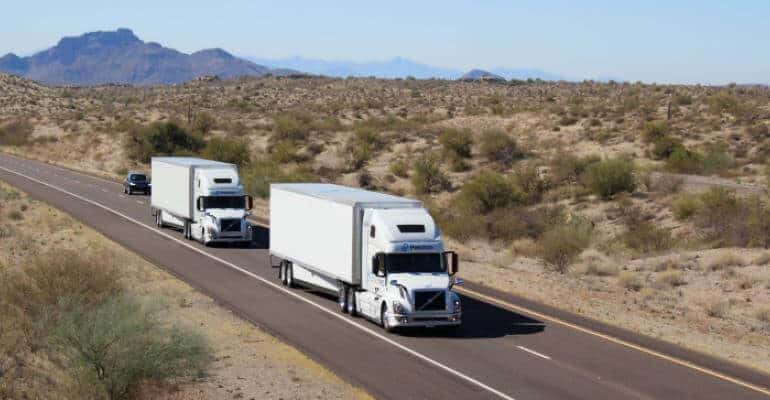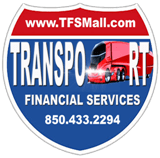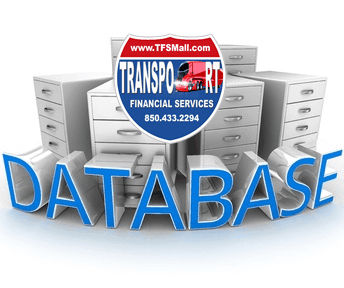The Department of Transportation (DOT), Federal Motor Carrier Safety Administration (FMCSA), and Surface Transportation Board (STB) are the three agencies within the DOT that serve in the issuance of licenses and permits.
 The DOT is charged with the safety elements in the transportation industry as a whole with oversight responsibilities regarding elements of railroad safety issues, and motor carrier safety inspections and transporting hazardous materials. They issue United States Department of Transportation (USDOT) numbers to motor carrier’s operations, and conduct random roadside safety checks of motor carriers. All motor carriers operating vehicles that require a CDL, (driver’s license) both for hire as well as private fleets must have been issued a DOT number.
The DOT is charged with the safety elements in the transportation industry as a whole with oversight responsibilities regarding elements of railroad safety issues, and motor carrier safety inspections and transporting hazardous materials. They issue United States Department of Transportation (USDOT) numbers to motor carrier’s operations, and conduct random roadside safety checks of motor carriers. All motor carriers operating vehicles that require a CDL, (driver’s license) both for hire as well as private fleets must have been issued a DOT number.
The Property Broker’s License or permits are issued by the Federal Motor Carrier Safety Administration (FMCSA) does not require an examination required, only the FMCSA filing fee. The broker’s license authorizes the arranging of transportation for shippers of general commodities (except household goods), including any manufactured products, such as automobiles, building material, supplies, liquids in bulk, frozen food, foodstuffs, new furniture, and any processed or manufactured products.
Broker are not directly or legally responsible for either cargo or liability insurance, but must provide proof that the carrier has adequate coverage to protect the shipper from loss.
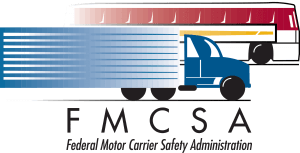 An application for a property broker’s license is called an OP-1 can be found on the internet or requested in writing from the FMCSA. The applicants Motor Carrier (MC) number is processed the same day, but takes 30 days to become Active as an operating authority. A ten (10) day protest period is mandatory on all applicants to determine if any state contest their authority for any reason, and requires a BMC 84 Broker Bond from an insurance company, or BMC 85 Trust Agreement from a financial or bank.
An application for a property broker’s license is called an OP-1 can be found on the internet or requested in writing from the FMCSA. The applicants Motor Carrier (MC) number is processed the same day, but takes 30 days to become Active as an operating authority. A ten (10) day protest period is mandatory on all applicants to determine if any state contest their authority for any reason, and requires a BMC 84 Broker Bond from an insurance company, or BMC 85 Trust Agreement from a financial or bank.
Although an individual can file an application themselves, it is prudent to seek Process Agents services to expedite processing, and save approximately ten (10) days to become Active as a licensed broker.
Household Goods Broker Permits
There is a distinction between “used household goods” and new furniture and fixtures, so a property broker can arrange for shipments of new furniture, but must be authorized to arrange for household good shipments by obtaining a Household Goods Brokers Permit MC number from the FMCSA.
Interstate and Intrastate Shipments
The meaning of these two terms is important to anyone dealing with transportation of freight, Interstate transportation used in the context of this document means any transportation movement of loads between one state and another. Therefore, this falls under the jurisdiction of the FMCSA regarding permits and licenses. Intrastate transportation is defined as a shipment with an origin and destination wholly within one state. Several states require intrastate broker permits, and a separate Intrastate Broker license form from that state, as well as an additional broker bond or trust.
Issuance of Broker License
Once your OP-1 application is processed with the FMCSA you will be assigned an MC number they will notify the applicant with the instruction to complete a BOC3 through the Process Agent, and acquire a BMC-84 Bond or BMC-85 Trust. Transport Financial Services is delegated with the authority by the FMCSA to process all FMCSA and DOT requirements for applicants to be licensed as brokers, carriers, and freight forwarders.
The Uniform Carrier Registration form is required as a transportation requirement for all motor carriers once they acquire their liability insurance. The TFS “Master Referral Program” is able to assist liability insurance and the Uniform Carrier Registration (UCR).
What is a BOC3?
The BOC3 form must be filed for carriers and brokers by a process agent company. This form contains a list in all 50 states of individuals authorized to accept receipt of legal papers on behalf of a broker or carrier not residing in that state. The FMCSA broker license authorized the arranging of transportation between the fifty (50) states, therefore must have a resident agent in each state the broker is authorized to conduct business in. When the resident agent is served with a summons, or any legal action the broker is considered legally served.
A Process Agent is part of the TFS Network, so we are able to meet all of the transportation compliance requirements of the Federal Motor Carrier Safety Administration (FMCSA) and Department of Transportation (DOT).

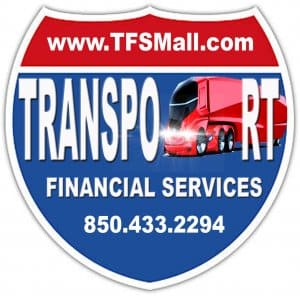 Furthermore, TFS manages the complexities of the transportation industry with cutting edge technology, improving customer service to nurture both foreign and domestic markets, thereby enabling development of training certification for “Today’s Broker”, as well as services for the most important commodity in this vast industry, the motor carriers, including funding requirements (factoring). All found in the business platform located at www.eTruckBook.com.
Furthermore, TFS manages the complexities of the transportation industry with cutting edge technology, improving customer service to nurture both foreign and domestic markets, thereby enabling development of training certification for “Today’s Broker”, as well as services for the most important commodity in this vast industry, the motor carriers, including funding requirements (factoring). All found in the business platform located at www.eTruckBook.com.
 Essentially, while no question federally licensed transportation brokers act as “independent contractors” concerning dealing with both motor carriers and shippers, there often is a question as to the precise nature of whatever service such an intermediary be “contracting” to provide concerning any bill of lading transaction. Contrary to common opinion, there are only two choices.
Essentially, while no question federally licensed transportation brokers act as “independent contractors” concerning dealing with both motor carriers and shippers, there often is a question as to the precise nature of whatever service such an intermediary be “contracting” to provide concerning any bill of lading transaction. Contrary to common opinion, there are only two choices.



 I served twenty-eight (28) years, and retired from the U.S. Amy as an exemplary soldier, and a more responsible citizen. I hurried up and waited, and understood the meaning of “Patience and Discipline”. My brother retired after Thirty-three (33) years from the Navy, and served an additional 10 years as an EEO Officer. Last, my older brother retired from the Air Force . We have all become better citizens, and conscious of those factions that are a detriment to our society, and the true “Meaning of the American flag”. The meaning of the American flag is defined as:
I served twenty-eight (28) years, and retired from the U.S. Amy as an exemplary soldier, and a more responsible citizen. I hurried up and waited, and understood the meaning of “Patience and Discipline”. My brother retired after Thirty-three (33) years from the Navy, and served an additional 10 years as an EEO Officer. Last, my older brother retired from the Air Force . We have all become better citizens, and conscious of those factions that are a detriment to our society, and the true “Meaning of the American flag”. The meaning of the American flag is defined as: